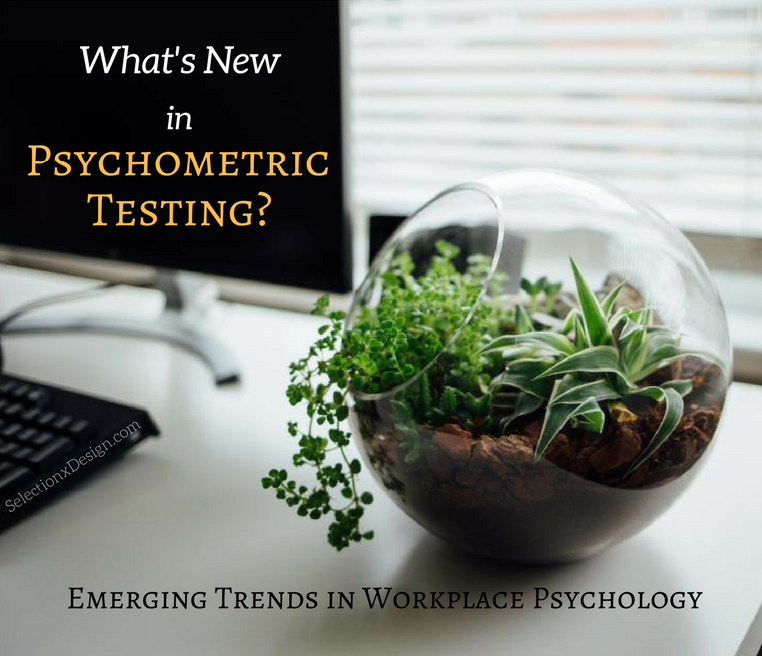The BPS Division of Occupational Psychology annual conference was held 10-12 January in charming Stratford-upon-Avon. This year’s theme, ‘Evolution Evolution +/or Revolution: Changing with the Times’, focused on celebrating the value Occupational Psychologists offer. With no shortage of informative talks and engaging speakers, this was a great opportunity to find out about new and emerging trends in workplace psychology.
Several of the presentations and workshops focused on psychometric assessments. I’d like to share with you some of the themes I noticed among these.
1. An extensive and widely varied range of assessments is now available on the market.
The many test publishers present at the conference were a great source of information on new test development and directions. Tests of abilities are now a mainstay in the realm of psychometric testing, covering the traditionally measured verbal, numeric and logical areas, as well as specialized skills. There is a growing emphasis on more in-depth assessment including tests of personality, strengths, and emotional intelligence. These may be useful in identifying work roles and environments that optimally suit an individual, or provide insight for personal growth, well-being and performance.
There are many different formats for reports being offered by publishers today. Depending on the test, it may be possible to obtain combined results for work team members, or multiple ratings of an individual, as with 360 degree feedback. Choice of which instrument to use may be influenced by the report options available.
2. Research on the validity of tests
Knowing how well tests predict work behaviours is at the heart of justifying psychometric assessment for employment decisions. Validation research has a long-standing history, and it was fantastic to see the results of such studies being presented at the conference. The kinds of questions being examined include how well ability and personality tests related to competencies like problem solving, risk taking, creativity or motivation.
3. Testing on the go
There is strong interest among occupational psychologists in the potential for assessment through mobile apps. Psychometric tests that can be taken on smartphones or tablets offer flexibility and convenience. The technology for this has now arrived, and companies are beginning to offer this option. Related areas for research include comparability with traditional testing formats, consumer reactions, and potential threats to security.
4. The potential of gamification
Gamification is gaining attention as an alternative means of assessment. The potential for measuring areas such as risk taking, decision making and cognitive abilities in an engaging and interactive way holds great potential. Advantages may include greater accuracy than that achieved through self-report personality measures or typical ability tests. This is because reaction times, or responses to presented stimuli can be recorded with high precision, and over multiple trials within one single game. Also, candidates may have a positive and enjoyable assessment experience, possibly influencing impressions of the organisation. With gaming assessment applications now being developed, on-going (and fun!) research into their validity and usefulness is set to continue.
Conclusion
Psychometric testing has grown tremendously, and is now entrenched in employee selection and development. The widespread use of ability testing is now being followed by more sophisticated and in-depth measures. Research on the uses for and outcomes of workplace testing continues. Tests themselves are becoming more accessible, and there is a new focus on the individual’s reaction to assessment. New technology may well change the way workplace tests are administered. This is an exciting time to be working with psychometric tests!
– Barbara
If you’ve yet to complete the training required to obtain BPS/EFPA Test User qualifications, check out our recent blog series on the benefits of doing so, beyond access to psychometric tests. Part 1 addresses lesser know benefits of Test User ability training, while Part 2 covers Test User personality. Selection by Design offers Test User training throughout the year. You can find our training schedule and prices (including discounts for students) here.


